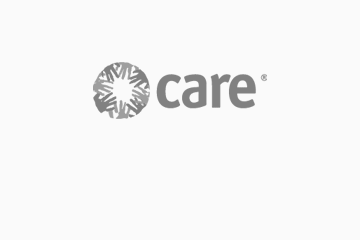Access to clean water and proper sanitation is a basic human right, yet 1.8 billion people still lack access to safe water
Access to clean water and proper sanitation is a basic human right, yet 1.8 billion people still lack access to safe water
Safe drinking water and better sanitation can help transform lives in the world’s poorest communities and are essential to helping families break the cycle of poverty.
We’re working with the people most at risk from dirty water by protecting water sources and constructing pumps, boreholes, and toilets in schools and communities. In 2013, these efforts helped more than 1.5 million people develop sustainable water practices.
Our water work isn’t just about digging wells or building toilets. We’re making long-term change by improving attitudes towards hygiene in communities: the importance of washing hands, storing water safely, and purifying water for drinking and cooking.
When emergencies strike we’re on the ground, ready to provide displaced people with access to vital water supplies and sanitation services.
 Fast facts
Fast facts
- 1.8 billion people lack access to safe water worldwide.
- In 2012, 2.5 billion still have no toilets or other means of improved sanitation.
- Around 700,000 children each year die from diseases associated with unsafe water, sanitation and hygiene.
- For every $1 invested in water and sanitation, an average of $4 is returned in increased productivity.
Gender equality and water
In many developing countries, families have no local access to clean water supplies. Often the task of collecting water is left to women, who spend up to five hours walking an average of three-and-a-half miles every day simply to collect water.
Providing access to clean water means that the health of entire families improves and more girls can attend school, rather than spending hours hauling water.
As women are often responsible for a family’s health and hygiene, we make sure women are included in decisions about how water is managed.
In 2013, we supported 173 women with capacity building and leadership training. Over 60 per cent of our water committees are led by women, while over half of these committees are made up of women. By placing a focus on women and girls, we’re working to bring about better outcomes for families and their communities.
Water, sanitation, and hygiene (WASH) in emergencies
When humanitarian emergencies strike, unless clean water, sanitation, and hygiene services are provided quickly to those affected, it is likely that there will be an outbreak of often life-threatening diseases, such as cholera and malaria.
In the last year, our WASH emergency team provided access to safe drinking water and sanitation for 1.2 million people affected by emergencies in more than 31 countries.
Donate
You can help install a water pump in a community for $150
Contacting PayPal...

Your donation will be
Please enter your credit card details.
Processing your payment...

Payment processing error.
Other Resources and Highlights
-
 Download
DownloadHelping Girls Manage Menstruation
CARE's thematic brief on menstrual hygiene management
-
 Download
DownloadTimor Leste – Innovative Partnerships to Enhance Community Resilience 806KB
Report on taking catchment approach to enhancing community resilience in Timor Leste.
-
 Download
DownloadTimor Leste – Achievements and Lessons 826KB
Achievements and lessons from CARE and WaterAid MAKA'AS project.
-
 Download
DownloadWater + Impact Report: Walking the Talk 8MB
Case studies of CARE's life-saving water and sanitation efforts from around the world

